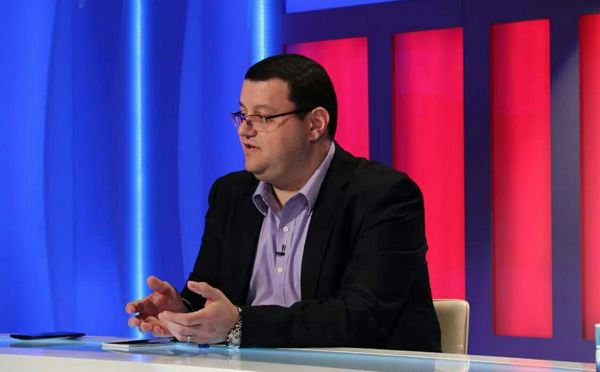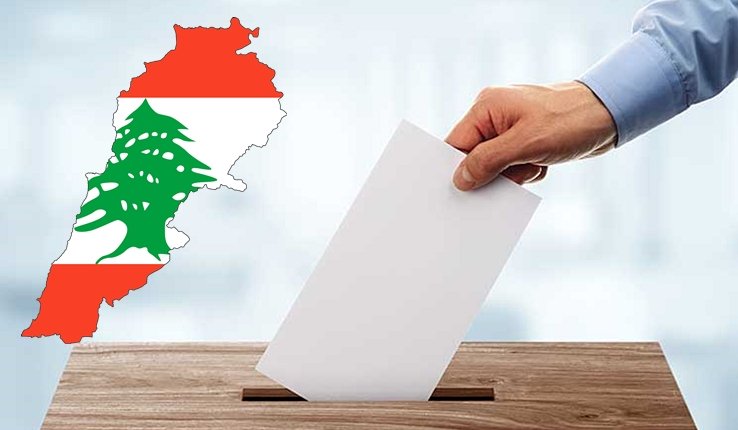Lebanon’s parliamentary elections offer promise and risk
Rami Rayess/ The Arab Weekly
24 ديسمبر 2017

The Lebanese people will make it to the polls May 6 after seven long years of electoral delay and political paralysis.
However, the new system of proportional representation that forms the basis of the new elections stands to affect not just how Lebanon’s politicians are elected but also how they govern.
It is hard to overstate the scale of the change next year’s elections will mark. Since gaining independence in 1943, Lebanon has been governed by a majoritarian system. The new system of proportional representation marks a break with the old one and a new direction for Lebanon and, hopefully, its historically dysfunctional parliament.
The difference between the two systems is stark. The majoritarian system is based upon a concept of winner-take-all in which whoever wins more than half the votes is awarded all the seats. However, the proportional system provides voters with competing lists of candidates and parties, allocated through Lebanon’s confessional system, from which they select a candidate.
Predictably, criticism has been quick in coming. Much of it has focused on the increase in the number of wards available and the reduced number of religions living within them. For instance, under the previous system, a Shia seeking election would have had to secure a significant number of votes from the Sunni and Christian population living in the candidate’s ward. True, many wards tended to vote exclusively with one faction. However, to some, the principle of cross-confessional appeal has been reduced.
Civil society has also proven less than impressed with the new system. The absence of any electoral monitor, no quotas for female candidates and ambiguous rules over campaign financing have cast doubt on its legitimacy. “It’s akin to putting new tyres on an old car,” a long-time observer of Lebanese elections told the New Yorker in June. “New tyres are useful when it’s a beloved classic car that speeds along but essentially pointless when the car is a dysfunctional old banger.”

The changes to Lebanon’s electoral law have dominated every aspect of the country’s political life — from the day-to-day operations of parliament, to the recent crises sparked by the shock resignation announcement of Prime Minister Saad Hariri. At that time, Lebanese President Michel Aoun exploited suspicions that Hariri’s allies, the Lebanese Forces, had betrayed him to his Saudi allies to bring him closer to his own axis, thus strengthening his own coalition.
In the short term, this may have been political opportunism. However, its implications have been far-reaching.
For much of the Lebanese political class, Hariri’s resignation proved a watershed moment. Prior to his announcement, much of the discussion focused on efforts to build coalitions among Lebanon’s various political parties. That changed with Hariri’s notional departure and his subsequent alignment with Aoun.
Since that point, discussion has focused almost exclusively on the likelihood of rule by a grand coalition of the big five parties: the Future Movement (headed by Hariri), the Free Patriotic Movement (Aoun’s party), Hezbollah, Amal Movement (headed by Speaker Nabih Berri) and the Progressive Socialist Party (headed by Walid Jumblatt).
If such a grand coalition were achievable — and discipline within it maintainable — it could redraw the entire parliamentary map and mark a volte-face in the distribution of power throughout the country.
The five parties could direct the legislative path of the parliament and would exert significant influence over the executive branch. Critically, the concentration of power in one grand bloc would essentially suck much of the air out of the rooms occupied by Lebanon’s smaller parties.
For some, that kind of pluralism may seem beneficial. However, for Lebanon, choked by endemic corruption and bureaucratic inertia, the delays involved in the rule by such a coalition could prove hard to predict.
Within that bloc, Hezbollah would almost certainly exert the most power but the diversification of interests would also serve as a likely check on the Party of God’s ambitions.
Next year’s elections stand to mark a paradigm shift for the Lebanese political class. A new coalition, one able to pass legislation quickly and effectively, would benefit all. However, a coalition dominated by Hezbollah and the needs of external parties operating to agendas of their own risks not just imperilling Lebanese democracy but potentially Lebanon, too.
 عن أمل جنبلاط المتجدد: لبنان يستحق النضال
عن أمل جنبلاط المتجدد: لبنان يستحق النضال
 صحافيون أم عرّافون!
صحافيون أم عرّافون!
 ماذا يجري داخل أروقة بيت الكتائب المركزي؟
ماذا يجري داخل أروقة بيت الكتائب المركزي؟


 عن الخرائط التي تُرسم والإتفاقات التي تتساقط!
عن الخرائط التي تُرسم والإتفاقات التي تتساقط!
 “الإنحراف في الحياة”/ بقلم كمال جنبلاط
“الإنحراف في الحياة”/ بقلم كمال جنبلاط
 هاشتاغ #صار_الوقت يحل أولاً في حلقة جنبلاط
هاشتاغ #صار_الوقت يحل أولاً في حلقة جنبلاط
 طاولة نقاش عن أزمة الصحافة في جامعة AUST
طاولة نقاش عن أزمة الصحافة في جامعة AUST
 عبدالله: ليظهر لنا وزير مكافحة الفساد حرصه في صفقات البواخر والفيول
عبدالله: ليظهر لنا وزير مكافحة الفساد حرصه في صفقات البواخر والفيول
 عبدالله: غريب أمر وزارة مكافحة الفساد!
عبدالله: غريب أمر وزارة مكافحة الفساد!

 Comment to Uri Avnery: How Sad What Is Looming Ahead
Comment to Uri Avnery: How Sad What Is Looming Ahead
 “Not Enough!”
“Not Enough!”
 … لمن لم يقرأ يوسف البعيني/ بقلم وسام شيّا
… لمن لم يقرأ يوسف البعيني/ بقلم وسام شيّا
 كمال جنبلاط في مولده الأول بعد المائة: تعاليمه وأفكاره ما زالت الحلّ/بقلم عزيز المتني
كمال جنبلاط في مولده الأول بعد المائة: تعاليمه وأفكاره ما زالت الحلّ/بقلم عزيز المتني
 رئيس حزب/ وليس (… سابقاً)/ بقلم د. خليل احمد خليل
رئيس حزب/ وليس (… سابقاً)/ بقلم د. خليل احمد خليل
 التوازن السياسي في لبنان
التوازن السياسي في لبنان
 لبنان… مشاريع انقلابية مؤجلة
لبنان… مشاريع انقلابية مؤجلة
 جنبلاط وحَمَلة أختام الكاوتشوك
جنبلاط وحَمَلة أختام الكاوتشوك
 Le Liban est un symbole de tolérance
Le Liban est un symbole de tolérance
 Our Automated Future
Our Automated Future
 The True Origins of ISIS
The True Origins of ISIS
 Les Misérables vs. Macron
Les Misérables vs. Macron
 عذراً أيها المعلم/ بقلم مهج شعبان
عذراً أيها المعلم/ بقلم مهج شعبان
 رساله الى المعلم / بقلم ابو عاصم
رساله الى المعلم / بقلم ابو عاصم
 إلى روح القائد والمعلم كمال جنبلاط/ بقلم أنور الدبيسي
إلى روح القائد والمعلم كمال جنبلاط/ بقلم أنور الدبيسي
 أسرار وعناوين الصحف ليوم الجمعة 14 كانون الاول 2018
أسرار وعناوين الصحف ليوم الجمعة 14 كانون الاول 2018














